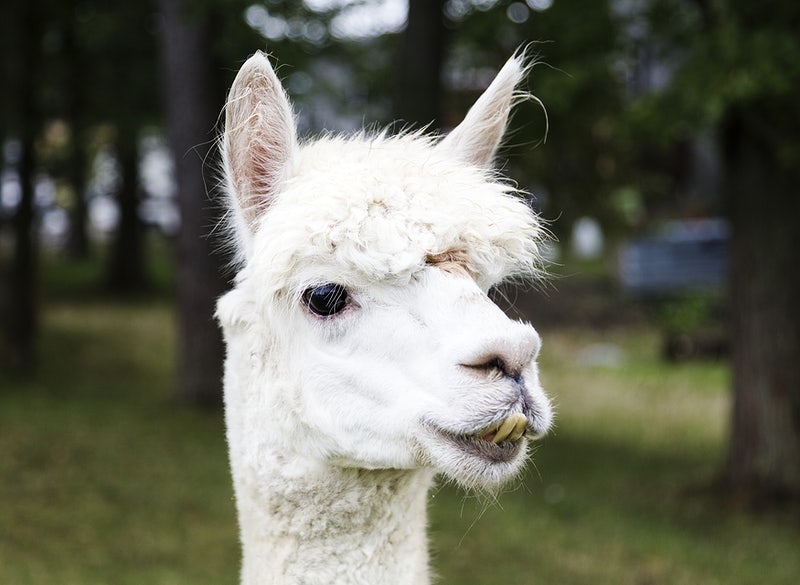Antibodies taken from llamas have been shown to neutralise the new coronavirus, and could possibly be developed as a treatment for patients with severe Covid-19, UK researchers announced on Tuesday.
The researchers hope that the antibodies - known as nanobodies due to their small size - could eventually be developed as a treatment for people suffering from severe Covid-19.
The team, made up of researchers from the Rosalind Franklin Institute, Oxford University, Diamond Light Source and Public Health England, engineered the new nanobodies using a collection of antibodies taken from llama blood cells.
Llamas, camels and alpacas naturally produce quantities of small antibodies with a simpler structure, that can be turned into nanobodies.
Initially, llama antibodies from a lab-based library were used, but antibodies from a live llama, Fifi, are being used for screening now. Fifi is one of the "Franklin llamas" based at the University of Reading, who has been immunised with harmless purified virus proteins.
Fifi's immune system produced different antibodies from those that were already identified, which will enable "cocktails of nanobodies" to be tested against the coronavirus.
Related News
- Coronavirus immunity could be gone in a matter of months, study finds
- New virus variant responsible for majority of global Covid-19 infections
- Coronavirus antibody study reduces hope for vaccine
Those nanobodies bind tightly to the spike protein of the SARS-CoV-2 virus, essentially covering up the parts that the virus uses to enter human cells, and stopping infection.
Additionally, the nanobodies bind to the spike protein differently from other antibodies that have already been discovered, advanced imaging with X-rays and electrons showed.
Even though a cure or vaccine for Covid-19 has not been found yet, serum from recovered patients -which contains human antibodies against the virus- has been shown to improve the clinical outcome for critically ill patients.
"These nanobodies have the potential to be used in a similar way to convalescent serum (serum of recovered individuals), effectively stopping the progression of the virus in patients who are ill," said professor James Naismith, Director of The Rosalind Franklin Institute and Professor of Structural Biology at Oxford University said.
"We were able to combine one of the nanobodies with a human antibody and show the combination was even more powerful than either alone," Naismith said. "Combinations are particularly useful since the virus has to change multiple things at the same time to escape; this is very hard for the virus to do. The nanobodies also have potential as a powerful diagnostic," he added.
The team of researchers carried out experiments that would typically take months to complete in just a few days, according to professor Ray Owens from Oxford University, who leads the nanobody program at the Franklin. "We are hopeful that we can push this breakthrough on into pre-clinical trials," he added.
The team's findings are peer-reviewed, and have been published in Nature Structural & Molecular Biology.
In May, researchers from Ghent’s VIB-UGent biotechnology centre and from the University of Texas at Austin also identified antibodies produced by a Belgian llama that offered a promising lead to develop treatments against the new coronavirus.
Maïthé Chini
The Brussels Times

